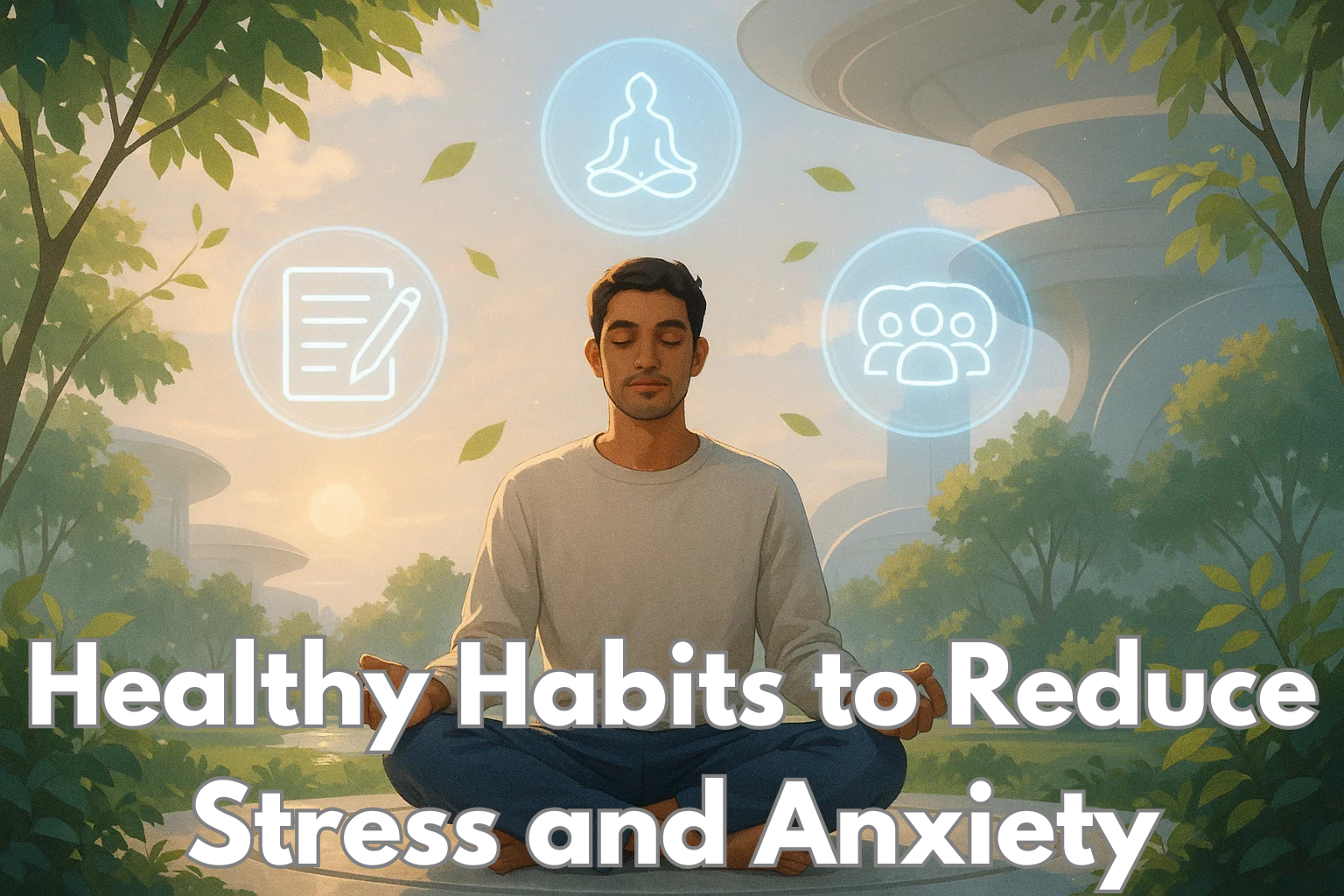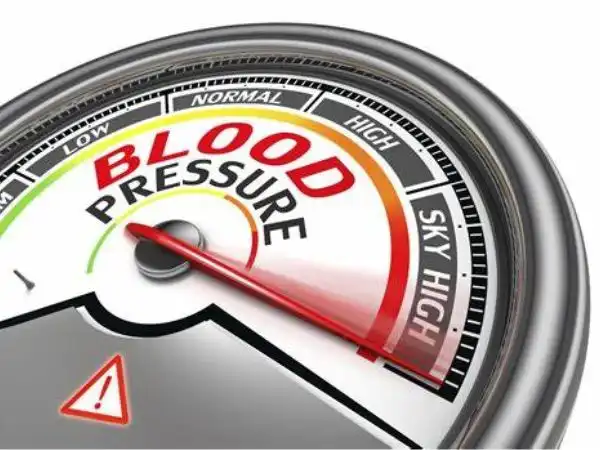By 2025, good mental health is not a habit but a need. We all already know the fundamentals — sleep better, eat better, exercise — but now the experts speak of layering on science-tested habits that go deeper than skin-deep niceness to stack your mental well-being habits. Small, daily habits, such as mindful breathing and walking outdoors, have actually been proven to rewire brain circuits so you can de-stress and calm down naturally.

The contemporary model of creating your mental well-being routine is one of harmony of body, mind, and environment. Rather than merely responding to stress when it arises, it’s one of daily strengthening of resilience through high-quality mental well-being routines. That’s heightened emotional sensitivity, creative capacity, and connectedness with others — all known in neuroscience to reduce levels of cortisol and increase stability of mood. Let us understand how healthy habits to reduce stress and anxiety help us.
The Neuroscience Behind Healthy Habits to Reduce Stress and Anxiety
Mindfulness for anxiety and stress means paying close attention to the present moment, which helps calm your mind and makes it easier to handle worries and tension. The latest research today informs us that habits such as meditation, journaling, and social connection actually rewire our brains and stress biology. The good mental habits actually reduce stress hormones like cortisol, increase brain plasticity, and rewire fear circuits to build long-term calm.
Meditation modulates the affective response by enhancing the brain activity in areas such as the anterior cingulate cortex (ACC) and orbitofrontal cortex (OFC), which enhance attention regulation and reduce negative affect. Meditation reduces the activity of areas involved in self-referential thinking and enables individuals to disengage from worry brooding. It even modulates inflammation gene expression and reduces blood pressure, thus enhancing its effect in stress modification. All of these evidence-based healthy mental habits together provide a good foundation for building on to upgrade your own practice of healthy mental habits to biologically reprogram the way your mind manages stress and worry.
Meditation Beyond the Basics: Technology-Enhanced Mindfulness against Stress and Anxiety
Meditation has come a very long way since its origins in the ancient world in 2025, and the new technology is used to aid in mindfulness regimens and fight stress and anxiety better. New methods of today use AI-powered apps, live biofeedback, and interactive virtual worlds (VR) to tailor mental wellness routines with precision and personalization. Thus, meditation can be a good, healthy habit to reduce stress and anxiety.
Mindfulness technology is led by AI-driven meditation apps. They customize guided sessions through machine learning so that they can respond to individuals’ meditative past, stress levels, and emotional equilibrium, and release each session depending on specific requirements. Apps such as Headspace, for example, fine-tune dynamically to individuals, with mindfulness for anxiety and stress more specific and efficient. The tailored strategy allows one to probe deeper in their practice and gain more with more mental well-being practice. Biofeedback is also an optimizing process that encompasses giving real-time feedback of body responses like brainwaves, heart rate, and muscle tension during meditation.
Devices such as Muse headbands track brain activity and change sounds or commentary to assist one in reaching a relaxation, concentration state quickly. Use of technology and meditation trains the body and mind to properly manage stress reactions so that users can maintain anxiety in check with less dependence on technology or commentary. Trials have demonstrated VR mindfulness as a more effective stimulus of user investment and physiological relaxation than conventional approaches. Integrating presence, attention, and compassion models, VR meditation is an unusually potent catalyst for boosting mental well-being practices for 2025.
Personalized Journaling: Uncovering Emotional Trends Through AI
Personalized journaling in 2025 revolutionized mental health through AI-powered online software, whereby one could discover emotional trends and causes of stress. Advanced journaling websites scan for repeating themes, mood, and stress behavior every time text input is made. You can reduce stress and anxiety naturally by making small changes that help your body feel calm without medicine.
AI journaling technology is more potent and precise in managing emotions than conventional methods. Practical advice is provided that facilitates the building of resilience by developing evidence-based habits that reduce cortisol and refine mental acuity.
With usability and privacy protection, these automated journaling systems provide the user with the ability to extend their practice of mental health using evidence-based results and habit change. Personalized journaling allows ongoing mental health development by balancing one’s experience, thus a great self-help tool for naturally managing tension and anxiety and furthering emotional perception and equilibrial development.
Ecosystems of Community and Support in 2025: The New Mental Health Paradigm
By 2025, support systems and networks will be fascinating psychological instruments in the virtual peer support groups, therapy-mix models, and mass community forums.
- Virtual peer support groups provide supportive, empathic, and stigma-free spaces where similar peers join online. Facilitated by peer-trained leaders, virtual support groups’ potential for creating bonding with the reduction of loneliness lies in coping and sharing strategies.
- Hybrid therapy models integrate the advantages of in-office and telecare. In hybrid models, patients are able to switch between in-office and virtual sessions as needed, with the convenience without compromising face-to-face contact. Hybrid models unite therapists, counselors, and other care providers under collaborative care and provide a whole-person care that harmonizes mental and physical treatment.
- Community websites maximize peer support by placing interactive spaces of sharing, support, and professional access in a networked cyberspace. They integrate social networking aspects with elements of therapy so that participants may observe patterns of emotions and formulate individualized plans.
- They all aggregate ecosystem innovations into transforming human beings’ practice of mental well-being to a new generation in 2025, and just how simple and efficient it is to stay away from stress and anxiety naturally with healthy mental well-being practices.
- By 2025, support and community systems will have become influential mental health interventions in the form of virtual peer group support, hybrid models of therapy, and mass community platforms. With various mental health concerns being addressed in sessions, online support has established itself as an underpinning of healthy mental health processes, empowering and engaging.
- Hybrid models of care take the best of the office visit and the telemedicine visit and combine them. Patients can simply switch between office and web-based visits at will, with the convenience lost not a whit of face time. Hybrid models integrate therapists, counselors, and other providers into team care to provide one-stop care for emotional as well as physical health.
- Community websites offer support from peers through creating an interactive social space for sharing, support, and professional information within a connected digital setting. Community websites integrate social networking capabilities with therapeutic elements so that patients can monitor emotional trends and create tailored action plans.
All these support system innovations collectively are re-engineering how one develops improved mental well-being in 2025 so that it is better and more apt to naturally prevent stress and anxiety by using good mental habits.
Habit Formation Science: Creating Lasting Healthy Habits to Prevent Stress and Anxiety
The habit science is an effective psychology and behavioral science approach that enables an individual to create long-term habits for enhancing mental health. Deep breathing and gentle exercise are easy ways to reduce stress and anxiety naturally and help you feel relaxed right away.
Research shows that habits develop as a result of repeated routine and emotional responses and, over time, become habitual in order to have a positive habit for the mind. Stress does, nonetheless, actually interfere because stress will naturally cause individuals to default into unyielding, habitual thought patterns—even the negative ones. Awareness of this is needed to have a habit that actually decreases stress and anxiety naturally. Methods such as ‘habit stacking,’ or linking new relaxing activities to already established daily routines, help to build a sense of continuity.
Brushing teeth, for instance, can be combined with slow relaxation breathing to shape a habit into a daily routine. Emotion tracking computer programs and computer reminders also make it simple by reminding one at the appropriate times, enabling compliance. Success in real life is based on incremental small gains of progress over the years and not revolution today. By using these science-backed techniques, you support your mental wellness regimen with autopilot habits, and stress relief functions more effectively and durably.
Success Stories from Real Life: What 2025 Innovators Are Doing about Stress and Anxiety!
Worldwide, 2025 innovators are remodeling their lives with the newest meditation, AI journaling, and web-enabled community support as a center of everyday life. These case studies demonstrate how well-being practices for coping with stress and anxiety are being upgraded and tailored to produce more effects.
- One user demonstrated how AI-personalized journaling helped her become aware of stressors she did not even know were affecting her, and she could plan personalized meditation sessions that lowered her anxiety level quite considerably. Another user testified to VR-based immersive mindfulness classes that surrounded her more deeply with mindfulness for anxiety and stress, and worked better than other alternatives.
- These findings show the potential of high mental practice of well-being through the utilization of technology and peer support in naturally keeping anxiety and stress away, encouraging other people to implement wholeistic habits. Healthy habits to reduce stress and anxiety are more than just quiet time—they include ways to balance feelings, hormones, and connect with others.
Myth-Busting: What Healthy Behaviors to Combat Stress and Anxiety Aren’t!
There are several myths about natural methods of stress and anxiety reduction; many oversimplify or overstate mental wellness exercises.
- The second is the concept that short-term solutions, such as vitamins or herbal teas, are a replacement for long-term habit modification. Effective habits of stress management demand the strength of steady effort, the use of multiple methods, and repeated rehearsals to establish lasting brain and behavior alteration.
- Most people believe that stress can be avoided altogether. But occupational hazards are what cause stress. The desire to take your practice of mental health to a higher level isn’t avoiding stress, but being resilient and coping.
- By being definite about what healthy habits actually are — habitual, evidence-based approaches to living such as meditation, journaling, exercise, and support — you create good expectations and allow for long-term change. Building healthy habits to reduce stress and anxiety can make it easier to handle daily challenges without feeling too worried or upset.
Conclusion: The Active Road to Healthy Habits of Minimizing Stress and Anxiety
Healthy habits to reduce stress and anxiety help your brain stay calm and strong, even when life feels overwhelming. Your 2025 mental wellness habit is an active road that is based on integration and customization. Equipping yourself with strong, evidence-based healthy mental wellness habits. Like meditation, journaling, and social support, it is effective in naturally suppressing stress and anxiety in the long term. The more technology, the more tools you have available to raise awareness about stress and anxiety. So you can realign habits to your goals, lifestyle, and needs. Welcome to this innovative guide that talks about healthy habits for mental health. With dedication and resolve, you can create strength, emotional balance, and enduring well-being that sustain you through a lifetime.


